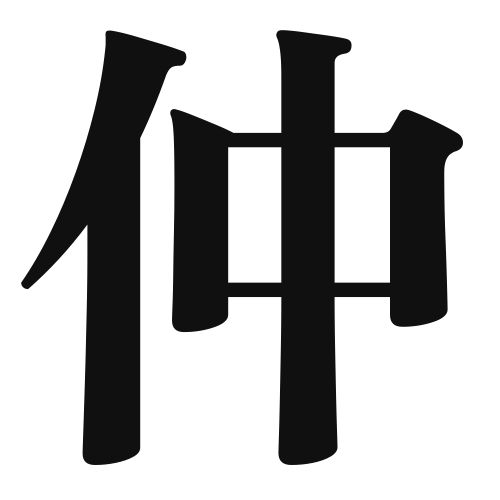1. Overview of Meaning
The kanji “仲” (naka) primarily means “relationship” or “intermediary.” It signifies the idea of being in the middle or connecting two parties, often used in the context of friendships or partnerships.
2. Formation and Radical
Formation of the Kanji: The kanji “仲” is a compound character (会意文字) that combines elements to convey its meaning. It consists of the radical “人” (hito), which means “person,” and “中” (naka), which means “middle.” Together, they represent the concept of a person in the middle of a relationship.
Radical: The radical of “仲” is “人” (hito), indicating its connection to people and relationships.
3. Examples of Usage
Common Words and Phrases: Some frequently used words that include “仲” are:
- 仲間 (なかま, nakama) – companions, friends
- 仲良し (なかよし, nakayoshi) – close friends
Example Sentences in Daily Conversation:
- 彼とはとても良い仲間です。 (かれとはとてもよいなかまです。) – He is a very good companion.
- 私たちは仲良しです。 (わたしたちはなかよしです。) – We are close friends.
4. Synonyms and Antonyms
Similar Kanji: A kanji with a similar meaning is “関” (kan), which means “relation” or “connection,” but it often refers to a more formal or official relationship.
Opposite Kanji: An antonym is “敵” (teki), which means “enemy,” representing a relationship of opposition rather than connection.
5. Cultural and Historical Background
Relation to Japanese Culture: The concept of “仲” is deeply embedded in Japanese culture, emphasizing the importance of relationships and harmony among people. It reflects the value placed on community and social bonds.
Proverbs and Idioms: One common saying is “仲良きことは美しきかな” (なかよきことはうつくしきかな), which translates to “Harmony is beautiful,” highlighting the significance of maintaining good relationships.
